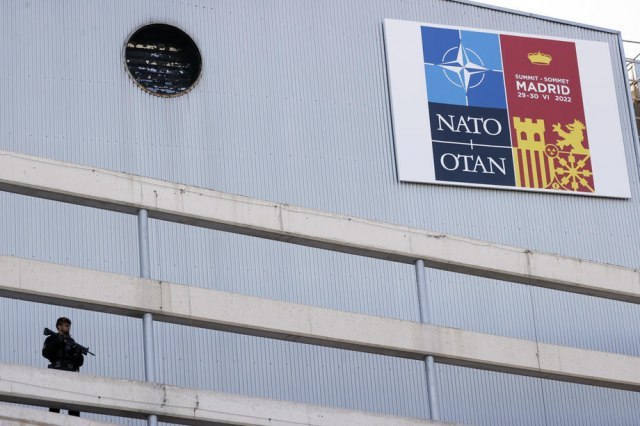"To save NATO, destroy it"
Portal Politico published a comment that "NATO needs to be destroyed in order to save it", actually calling for the reform of the alliance, as it's "failing".
SOURCE: JUTARNJI LIST
"The transatlantic alliance needs more than a rethink. It needs to be reborn", Politico points out.
At the close of what leaders across the West billed as a “historic” summit on Thursday, which included dinners in the Spanish capital’s sumptuous royal palace and the spectacular Prado museum, superlatives were flying fast and furious.
Calling the summit “transformative” and “far-reaching,” NATO Secretary General Jens Stoltenberg predicted at the close of the three-day affair that the decisions made there would “ensure that our Alliance continues to preserve peace, prevent conflict, and protect our people and our values.”
Look beyond the staged backslapping, bonhomie and self-congratulation in Madrid, however, and one can see that while the alliance’s unity might be a mile wide, it’s also only an inch deep; its collective sense of purpose as varied as its 30 members.
Start with the issue at hand: That the leaders managed to declare Russia — which has been threatening European security since at least 2007 - the “most significant and direct threat” to security, peace and stability in the Euro-Atlantic area is more of a sign that they are masters of the obvious than of grand strategy, according to Politico.
The other signal achievement cited by Stoltenberg was a much-heralded deal to bring in Sweden and Finland. This was less the result of high diplomacy and mutual defense than what might politely be called extortion on the part of Recep Tayyip Erdoğan. The Turkish President held the pair’s accession hostage over his desire to buy new F-16 fighters from the U.S. - and got what he wanted.
That portal even wonders whether Turkey would even send its army in the event of a Russian invasion of the Baltic countries. "Does anyone really believe he can be counted on to send troops to help the Baltics in the event of a Russian invasion? Hardly", Politico concludes.
The text further states that Erdogan and Viktor Orbán's membership in the Alliance not only undermines NATO's claims that it is a community that shares liberal values, but also makes a mockery of them. And they’re not the only ones undermining NATO‘s legitimacy.
Up until Russia’s February 24 assault on Ukraine, France and Germany were still fantasizing about “strategic autonomy” — the notion that Europe should liberate itself from the American security guarantees that allowed the Continent to flourish in the postwar era, and instead seize the reins of European security for itself.
Indeed, just weeks before the Russian invasion, prominent German politicians, including Annalena Baerbock, now foreign minister, were demanding that the U.S. withdraw all of its nuclear warheads from German soil.
Overnight, the same German leaders who had for years ignored U.S. pleas to stop "starving Germany’s military of resources" and start contributing more to NATO defense were transformed into true believers.
This new commitment to NATO, Politico assesses, is the result of fear, not conviction. The glue that binds it is not a unity of vision, but the instinct to cower under America’s nuclear umbrella.
That’s not enough to hold it together — especially if Washington starts to suspect it’s being left to do most of the heavy lifting.
Much of the European public remains divided on how far to go in confronting Putin, in part because their own governments have shied from acknowledging the degree to which all of the Continent is at risk.
If Ukraine continues to lose territory and human lives because it lacks means for defense, Politico assesses, the blame will lie with NATO. Although Biden has now put the USA back in the saddle of NATO, after Trump, who fiercely distanced United States from the Alliance, this does not mean that the USA will continue to see NATO as a priority because of its own problems with China, which again means that it will be less concerned about the situation in Europe.
That is why NATO, as suggested by Politico, should implement a radical reform, stop relying exclusively on the US and expel from the Alliance member countries that do not respect basic democratic norms. Namely, if members don’t adhere to basic democratic norms, they should be forced out.
Similarly, those not willing to contribute to their own defense should be encouraged to seek their security guarantees elsewhere.
"In military circles, the tactic of “destroying a town to save it” is controversial. In NATO’s case, there’s no other option", Politico concludes.
No comments:
Post a Comment